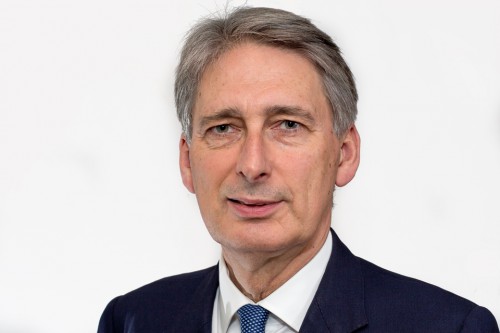13th January 2015
We Cannot Afford Not to Reform the European Union

The UK and Bulgaria are geographically at opposite ends of Europe. Our economies are different in size and structure. And our historical experiences of building democratic institutions have been poles apart. Yet, as British Foreign Minister Philip Hammond will see for himself this week, our two countries have a lot in common when it comes to the European Union reform agenda.
Ever since 2008’s financial crisis, it has become ever more vital for the EU to focus on increasing growth and jobs and thereby living standards, especially for young people. And it is clear that this will only happen if we collectively increase our competitiveness. We cannot afford not to.
Bulgaria has much to gain from a more competitive EU. With its hard-working and well-educated workforce and low cost base, Bulgaria would benefit directly from completion of the single market in services. And as an IT hub with a burgeoning reputation for excellence, Bulgaria needs the digital single market to move from words to reality. It is crazy that in the 21st century it is so much easier to trade physical products than digital goods and services.
Free trade agreements, especially TTIP, have a lot of potential for Bulgaria to exploit for similar reasons. And as the EU country with the highest proportion of family-owned businesses, Bulgaria is an enthusiastic supporter of the UK’s proposal to exempt micro-businesses from all EU red tape (albeit that some Bulgarian red tape may need cutting as well!) Business and consumers should be driving those changes, taking ownership of the reforms and being consulted by national and EU legislators.
Philip Hammond will also explain the UK’s belief that actions must be taken to tackle what we call the European Union’s democratic deficit. In European election after election, the turnout is lower and lower. At the same time, in many countries including the UK, there is a growing sense of alienation from Brussels. The UK wants national parliaments, working together across the EU, to have a stronger voice in EU decision-making. After all, they are the focus for ordinary voters, and for our media and political attention. Angela Merkel said on 19 December last year “As the European elections showed, the people do not think that Europe must do everything. Europe must do the things that can be done better than we do them in the nation states.”
I do not expect there to be much discussion of Free Movement of People. It is now over a year since transitional restrictions were lifted, as the British Government always said they would be. And Prime Minister David Cameron has been absolutely clear in his public comments “our openness is part of who we are.” Our focus is on how to stop people who would seek to take advantage of our welfare systems.
Philip Hammond will have discussions on many other important matters, including Russia’s aggressive posture in Ukraine and the region, energy security, Syria and stemming the flow of foreign fighters. But none will be more important for our economic futures than agreement on EU reform objectives, and then persuading our EU counter-parts to be bold defending them. I am sure this work will be a major part of discussions in the lead up to our joint EU Presidency with Bulgaria and Estonia in 2017-2018.